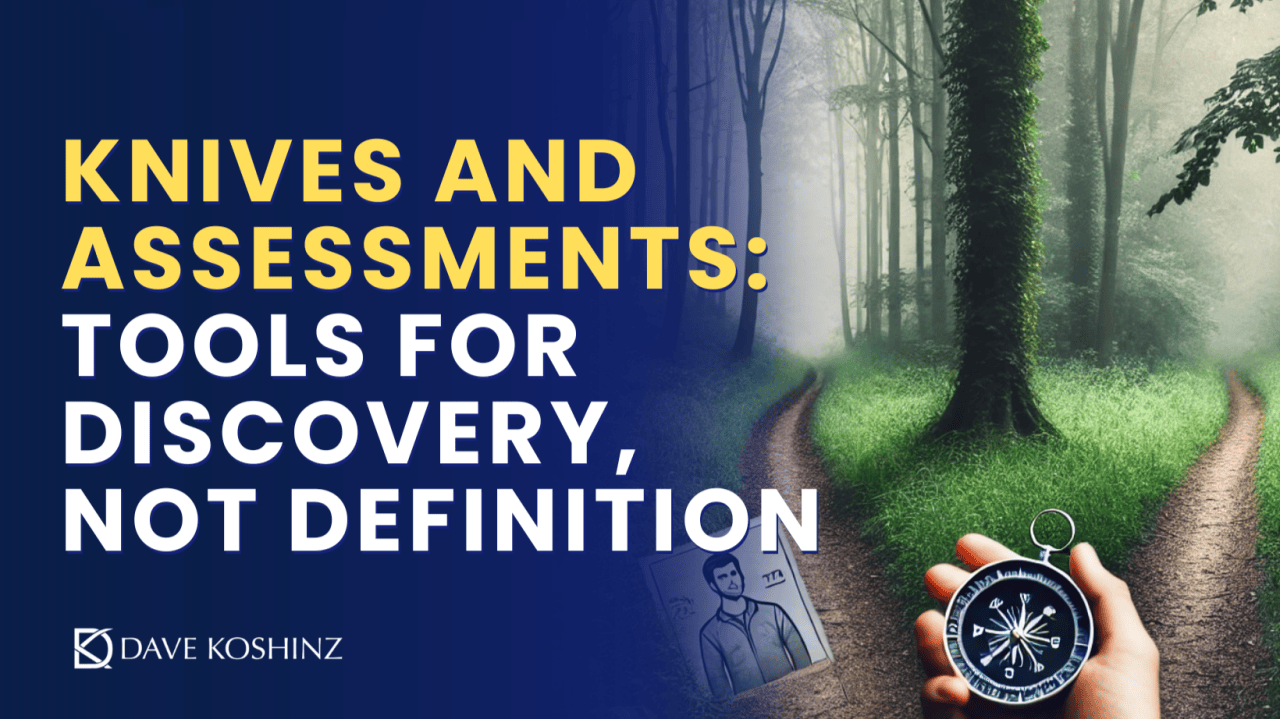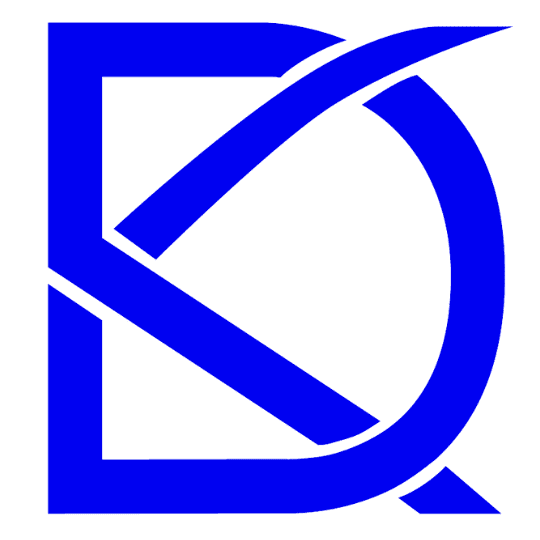
Today a client asked what I thought about the Enneagram. It’s a question I get often, not just about the Enneagram but about personality assessments in general. These tools, from the Myers-Briggs Type Indicator to the DISC profile or any number of 360-degree feedback instruments, are fascinating and insightful. But they are also, in many ways, like knives. Useful tools, but only when you understand their purpose, limitations, and how to use them.
The Utility and Danger of Tools
Knives are incredibly versatile. They can help prepare a meal, carve intricate designs, or even save lives. But if you misuse a knife—if you wield it carelessly or use it for the wrong task—you can hurt yourself, or others. Personality assessments, like knives, can heal or harm. They can slice into the intricacies of our thoughts, behaviors, and motivations, revealing things we might not have seen before. Yet, they can be used carelessly or with the intention of cutting people down to size or slotting them into rigid categories.
Assessments can help you understand individuals and teams better, but if you use them prescriptively, you can easily lose sight of their most valuable purpose. They aren’t meant to define people or box them in; they are tools to help you explore deeper, much like a microscope reveals details that the naked eye cannot perceive. But a microscope alone doesn’t explain what you’re seeing—it simply makes it visible. The real work begins in understanding, interpreting, and integrating what is revealed. That isn’t a surgical process but an evolutionairy one.
Personality Assessments: Great Conversation Starters, Not Endpoints
Personality assessments are fantastic conversation starters. They create a framework for meaningful discussions, allowing us to articulate what we experience and how we feel about ourselves and others. They provide a vocabulary to expand communication and can open doors to deeper understanding. But they’re just that—a starting point.
You cannot truly know someone by their Enneagram number, Myers-Briggs type, or their score on a 360 assessment. These tools help you see patterns or traits, but knowing someone requires something far more nuanced: real, meaningful, perceptive communication. It’s through open, ongoing interaction that we discover the subtleties and contradictions that no assessment can capture.
These tools can highlight traits or behaviors we judge as negative, but there’s a hidden value in that. It’s not just about seeing differently, it’s about seeing deeper. When we encounter a trait we find undesirable—whether in ourselves or someone else—it’s a chance to examine the judgments we hold. Our reactions to these traits can reveal a lot about our own beliefs, assumptions, and interpretations. This awareness is where the real learning happens, allowing us to grow by understanding our reactions instead of becoming trapped by them.
Hold It Loosely: Embracing Ambiguity
One of the most important pieces of advice I offer when using personality assessments is to hold it loosely. What does that mean? When you define or categorize something too rigidly, you’re essentially “putting it to bed.” You’re closing the book on deeper exploration, and in doing so, you miss the opportunity for the kind of conscious and subconscious reflection that often leads to profound insights. Yes “subconscious” reflect happens in the background. Have you ever slept on something or held off on a decision only to find that the solution comes as an insight?
Holding something loosely means allowing it to remain somewhat ambiguous. It means resisting the urge to neatly box up your understanding of yourself or others based on the results of a test. Ambiguity is uncomfortable because it challenges our need for clarity, for closure. But when we remain in the tension of ambiguity, we open ourselves to new discoveries. Tension is potential…
Rigidly categorizing someone based on an assessment can also serve as a defense mechanism. If the results reveal something we don’t want to see, we may try to dismiss or minimize it by confining it to a neat little box. Keeping it from unsettling our psychology by challenging our beliefs. Yet these uncomfortable revelations are often where the richest learning occurs. They give us the opportunity to grow by challenging our assumptions, interpretations, and beliefs. Every defense mechanism is an invitation to learn. In fact everything is an opportunity to learn, that’s called a growth mindset.
The Paradox of Knowing: The More You Know, the More You Realize how much you Don’t Know
By using personality assessments with an open mind and a loose grip, you’ll gain insights, but they will not tell you who you are. The reality is, no tool can. Understanding yourself is an ongoing journey, not a box to be checked. We are far too complex, too dynamic, to be summed up by a set of results. The same is true for others—understanding someone else is an even greater mystery.
The process of self-discovery and understanding others is a lifelong practice. I think it’s one of the greatest challenges and most profound adventure in life. The more you explore, the more you realize how much remains unknown. This is the paradox of knowing: the more you learn, the more you realize there is to learn. It’s an endless journey of refinement, reflection, and growth. Over time we gain deeper connection with our own locus, soul, truth whatever word fits for you. And we shed the ideas we took on to make sense of the world, mostly the ones that no longer align with our greater understanding.
Finding Balance: Too Much Thinking, Not Enough Feeling
Some assessments require a lot of intellectual effort, and while they can be helpful for certain types of analysis, they can also lead to overthinking. Mental puzzles can be enticing, but also a way to avoid taking action and exploring new behaviors.
I often find that tools that are highly prescriptive—those that try to define you in exact terms—are less beneficial than simpler tools, followed with aciton. Why? Because too much thinking can get in the way of experiencing.
Life and relationships aren’t meant to be purely intellectual exercises, that squeezes the juice out of them and life becomes rigid and dry. They require emotion, intuition, and a bit of mystery. When we lean too heavily on intellectualization, we risk missing the richness of human experience that goes beyond what can be categorized or defined.
In the end, personality assessments are just tools—like knives, microscopes, or compasses. They can point you in the right direction, help you see what you wouldn’t otherwise see, and provide clarity. But they cannot define you. They can illuminate aspects of yourself or others, but they cannot capture the whole picture. It’s up to you to do the deeper work of understanding, growing, and communicating meaningfully with others.

